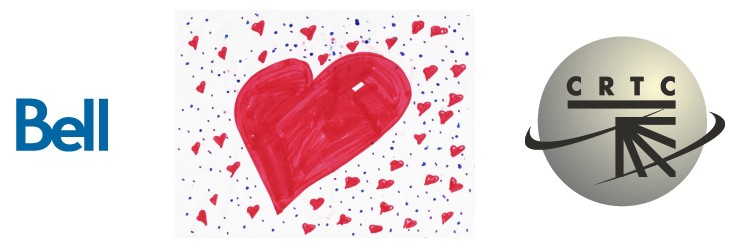What a week. Broadband policy now has its very own death panel, in the form of accusations that Net Neutrality policies are:
- a Marxist-Obama plot to control the Internet;
- designed to silence conservative talk radio like the Fairness Doctrine;
- going to ruin Sen. John “I don’t use e-mail” McCain’s (R-Arizona) day.
Just a few years ago we watched former Sen. Ted Stevens (R-Alaska) tell us the Internet is not a truck but a series of tubes. Glenn Beck earlier this week was coddling a small, terrified puppy that he claimed represented cowardly media missing out on the grand Marxist conspiracy underway, and Net Neutrality was just the latest piece of the coup puzzle. Now one Tennessee congresswoman believes Net Neutrality is the Fairness Doctrine of 2009 and is being run by a czar.
Let’s review:
Sen. John McCain (R-Arizona) has introduced the ironically named “Internet Freedom Act” to free the broadband industry from potential oppressive government overregulation.
“Today I’m pleased to introduce ‘The Internet Freedom Act of 2009’ that will keep the Internet free from government control and regulation,” said McCain. “It will allow for continued innovation that will in turn create more high-paying jobs for the millions of Americans who are out of work or seeking new employment,” McCain continued. “Keeping businesses free from oppressive regulations is the best stimulus for the current economy.”
It’s certainly a stimulus — for broadband provider coffers and for McCain himself, who is Congress’ top recipient of big telecom money in the form of campaign contributions (over $900,000 and counting). He’s the best senator the telecom industry could buy. But wait, the guy who doesn’t own a computer or use e-mail says ‘father knows best’ for America’s online communities? McCain released a statement introducing his new bill:
The wireless industry exploded over the past twenty years due to limited government regulation. Wireless carriers invested $100 billion in infrastructure and development over the past three years which has led to faster networks, more competitors in the marketplace and lower prices compared to any other country. Meanwhile, wired telephones and networks have become a slow dying breed as they are mired in state and Federal regulations, universal service contribution requirements and limitations on use.
And we all know who has one of those dying breed rotary dial wired telephones, don’t we?
In fact, wireless industry profits have exploded over the past twenty years as the vast majority of Americans signed up for service. The industry has been so awash in cash they’ve been on a consolidation shopping spree for at least the past three years, buying each other out through mergers and acquisitions. The number of competitors John McCain thinks he sees growing is, in reality, a case of double vision. He should get that checked. Lower pricing? Not quite.
Consumers don’t dump wired telephones because of government regulations:
“Honey, I can’t believe they are doing a Reverse Morris Trust deal with the phone company over in West Virginia. We should cancel our Verizon phone line and take our business elsewhere… to Verizon Wireless instead — that will show them!”
Consumers confronting two telephone bills, one for the wireless and one for the wired phone, makes one redundant for those Americans trying to economize in this difficult economy. The McCain family doesn’t have to
economize thanks to Comcast, AT&T and Verizon – just a few cutting checks to the self-described maverick. Increasingly, consumers are looking for better deals and finding one with the cable company’s “digital phone” product, or an Internet-based Voice Over IP service. State and federal regulations aren’t the problem — the quality and price of the service can be.
The vast majority of those consumers switching to wireless do not escape “universal service contribution requirements” either. More often than not, wireless phone bills are decorated like Christmas trees with add-ons for everything from USF fees to 911 support surcharges, local, county, state and federal taxes, among others.
Limitations on use? That would not be the wired telephone line’s flat rate calling plan. The limitations are more commonly found on the wireless side, where many consumers get an allowance and a per-minute fee for exceeding it. It sounds like the out of touch senator probably still makes station to station calls to “enterprise numbers.” Welcome to the 21st century.
In short, John McCain doesn’t understand what he is talking about. He apparently does understand those big telecom industry checks he gets, however. No doubt that is the real inspiration for this industry-friendly legislation.
Rachel Maddow spent several minutes Friday night breaking down McCain’s legislation and what Net Neutrality is really all about.
[flv width=”596″ height=”336″]http://www.phillipdampier.com/video/MSNBC Rachel Maddow Net Neutrality 10-23-09.flv[/flv]
Rachel Maddow and Xeni Jardin, co-editor of Boing Boing discuss Sen. McCain’s “Internet Freedom Act” and Net Neutrality. (6 minutes)
We’ve already dealt with the psychotic world of Glenn Beck. The self-described “rodeo clown” is entertaining, as long as you recognize reality has a restraining order against Beck and must keep at least 900 feet away from him at all times. Art Brodsky from Public Knowledge speaks to Beck’s worldview:
“Mr. Beck fails to understand the fundamentals of how the Internet works. He should be in favor of Net Neutrality, because it guarantees streaming of his program will not be able to be placed behind, say, Keith Olbermann’s Countdown. That could happen if NBC’s owner decided to pay protection money for prioritized data transmission.”
Meanwhile, Rep. Marsha Blackburn (R-Tennessee) took time out from her tireless efforts to root out the czar problem in the Obama White House to conflate Net Neutrality with the Fairness Doctrine, conservative talk radio’s garlic-to-a-vampire bugaboo. Appearing at an event sponsored by the Astroturf group “Safe Internet Alliance,” Blackburn railed against “government interference” in broadband, as Kim Hart from The Hill took it all down. It was an amazing feat, considering she stumbled her way through a statement:
“Net neutrality, as I see it, is the Fairness Doctrine for the Internet,” she said. The creators “fully understand what the Fairness Doctrine would be when it applies to TV or radio. What they do not want is the federal government policing how they deploy their content over the Internet and they want the ISPs to manage their networks and deploy the content however they have agreed on with ISP. They do not want a czar of the Internet to determine when they can deploy their creativity over the Internet. “They do not want a czar to determine what speeds will be available…. We are watching the FCC very closely as it relates to that issue.”
When it comes to broadband expansion, she said, she wants to make sure “all individuals’ rights are respected and that we look at the freedom of all broadband participants.” She said Congress needs to make sure the groups receiving stimulus funds for broadband expansion are able to deploy reasonable and effective network management tools so they can be helpful in tracking down illegal activity.”
“We shouldn’t look at technology as how do we punish and impede, but how do we encourage innovation,” she said. “That needs to be a key thought as we move forward. How do we encourage that innovation and not impede it?”
Blackburn herself is impeding a rational discussion with her word salad.
Blackburn doesn’t see or understand much of anything. Her off the rails representation of Net Neutrality as the equivalent of the Fairness Doctrine is bizarre at best, just plain rock stupid at worst. Indeed, the Fairness Doctrine did dictate a form of balance in opinions for licensed radio and television stations in this country before it was repealed. Net Neutrality specifically requires Internet providers, and everyone else, to keep their hands out of determining whether something is balanced or not. The Internet is not a licensed medium, and the free exchange of ideas possible on today’s Internet already provides the ultimate fairness, where ideas can be freely expressed by anyone.
Glenn Beck sees Marxists. Marsha Blackburn sees czars. These folks need to cut down on the borscht for lunch.
Blackburn’s only priority for broadband stimulus seems to be using the money to help ferret out illegal activity online. Perhaps she can come over and clear out my spam folder.
I didn’t even realize we had a Broadband Speed Czar. I want to be the Broadband Speed Czar, moving across the land and banishing slow, expensive, and just plain lousy slow broadband technologies. I decree no Internet Overcharging experiments and fiber-fast speeds for all!
As for the “Safe Internet Alliance,” considering their members include AT&T, the National Cable & Telecommunications Association, Verizon, and a whole mess of other astroturfers (many who also belong to Broadband for America), we can guess the kind of safety they are looking for.


 Subscribe
Subscribe









